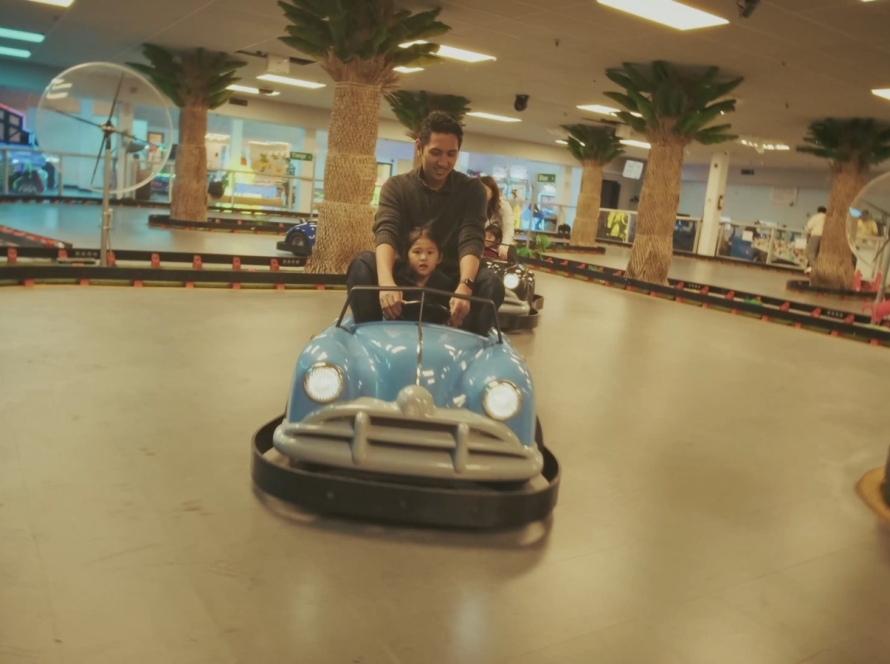Indoor playground serve as dynamic environments where children develop essential social skills through engaging, interactive play. Research indicates that 75% of a child’s social-emotional development is shaped by play-based experiences, underscoring the value of these structured spaces. As parents and educators seek effective ways to support child development, indoor play areas offer a safe, accessible solution for fostering skills like communication, teamwork, and empathy. This article examines the mechanisms by which indoor playground promote social growth, provides actionable strategies for parents, and highlights measurable benefits. Continue reading to understand how these play spaces contribute to your child’s social development.
The indoor playground at Kart Town serves as a structured and safe environment that plays a vital role in developing children’s social skills. Through interactive design and group-based activities like role-playing zones, obstacle courses, and collaborative simulators, kids are encouraged to practice teamwork, effective communication, and empathy. In a world where free play opportunities are limited, indoor playground offer a valuable space for children to learn conflict resolution, emotional regulation, and friendship-building.
The Importance of Social Skills in Child Development
Social skills form the cornerstone of a child’s ability to build relationships, collaborate, and thrive in diverse settings. These skills, encompassing communication, conflict resolution, and empathy, are critical for academic achievement and emotional well-being. The American Academy of Pediatrics emphasizes that early social-emotional development correlates strongly with long-term success in school and beyond.
Modern lifestyles, including increased screen time and reduced outdoor play opportunities, often limit children’s chances to practice social interactions. Urban environments, in particular, may lack safe, accessible spaces for unstructured play. Indoor playgrounds address this gap by providing controlled yet stimulating settings that encourage meaningful peer engagement.
Play as a Catalyst for Social Learning
Play-based learning enables children to explore social roles, practice interpersonal skills, and develop emotional intelligence. Indoor play areas enhance this process by offering varied activities that promote collaboration and creativity. These environments create natural opportunities for children to learn through experience.
Ready to help your child build essential social skills through play? Discover expert tips, top indoor playgrounds, or plan a visit to a trusted play area today.
How Indoor Playgrounds Foster Social Skills
Indoor playgrounds are purposefully designed to cultivate social skills through interactive, child-led activities. Unlike passive entertainment, these spaces encourage active participation, problem-solving, and peer collaboration. Below are key ways they support social development.
Promoting Teamwork Through Collaborative Play
Many indoor play areas incorporate group-oriented features, such as obstacle courses or imaginative role-play zones. For instance, children may collaborate to complete a climbing structure or engage in pretend play as shopkeepers and customers. These activities reinforce teamwork and leadership, critical components of child development.
Enhancing Communication Abilities
Navigating play scenarios, such as deciding who uses a slide first or explaining game rules, requires children to practice verbal and non-verbal communication. Indoor playgrounds facilitate these interactions, enabling children to express their needs and understand others effectively.
Cultivating Empathy and Emotional Awareness
By bringing together children of varying ages and backgrounds, indoor play areas encourage understanding and respect for diverse perspectives. Actions like comforting a peer or sharing resources during play help children develop empathy, a foundational social skill.
Strategies for Parents to Optimize Social Development
Indoor playgrounds inherently support social growth, but parents can maximize these benefits through deliberate approaches. The following strategies ensure children gain the most from their play experiences.
- Select Developmentally Appropriate Venues: Choose indoor playgrounds with activities aligned with your child’s age and skill level to foster confident participation.
- Facilitate Peer Engagement: Encourage your child to join group activities or initiate interactions with peers to build social confidence.
- Demonstrate Positive Behaviors: Model cooperation and kindness during play sessions to reinforce social norms.
- Reflect on Play Experiences: Discuss the play session afterward with questions like, “How did you and your friend decide what to play?” to solidify social learning.
- Minimize Digital Distractions: Ensure playtime remains device-free to prioritize face-to-face interactions.
For example, during a visit to an indoor playground, a parent observed their reserved 6-year-old hesitate to join a group activity. By gently encouraging participation and discussing the experience later, the parent helped the child build confidence and form a new connection.
Benefits of Indoor Playgrounds for Social Growth
The advantages of indoor playground extend beyond immediate play, contributing to long-term social and emotional development. Evidence-based benefits highlight their role in shaping well-rounded children.
Strengthened Peer Relationships
A 2023 study revealed that children engaging in regular collaborative play are 60% more likely to develop robust peer relationships. Indoor play areas provide consistent opportunities for such interactions, fostering lasting friendships.
Improved Emotional Regulation
Social scenarios, such as waiting for a turn or resolving minor disputes, teach children to manage emotions like frustration. These experiences enhance self-control, benefiting behavior in academic and home settings.
Increased Self-Confidence
Successfully navigating social challenges during play, such as leading a game or sharing resources, boosts children’s self-esteem. This confidence equips them to handle future interpersonal situations with assurance.
| Social Skill | Development Mechanism | Long-Term Impact |
|---|---|---|
| Teamwork | Collaborative games and shared tasks | Enhanced group collaboration in academic settings |
| Communication | Negotiating roles and rules | Improved clarity in expressing ideas |
| Empathy | Engaging with diverse peers | Greater emotional intelligence |
Common Pitfalls and Frequently Asked Questions
While indoor playgrounds offer significant benefits for child development, certain oversights can diminish their effectiveness. Addressing common mistakes and questions ensures optimal outcomes.
Pitfalls to Avoid
- Excessive Supervision: Over-monitoring can inhibit children’s ability to take social initiative. Allow independent exploration within safe boundaries.
- Neglecting Safety Standards: Verify that the playground maintains hygiene and age-appropriate equipment to ensure a secure environment.
Frequently Asked Questions
Are indoor playgrounds beneficial for introverted children? Absolutely. These spaces allow introverted children to engage at their own pace, gradually building social comfort.
How frequently should children visit indoor play areas? Weekly visits, balanced with other activities, provide consistent social practice without overstimulation.
Sum Up
Indoor playground play a pivotal role in fostering social skills for kids, offering structured environments that promote teamwork, communication, and empathy. By facilitating play-based learning, these spaces help children build strong peer relationships, regulate emotions, and gain confidence. Parents can enhance these outcomes by selecting appropriate venues, encouraging peer interactions, and reflecting on play experiences.
The birthday party rooms at Kart Town are more than just spaces for celebration—they’re opportunities for children to strengthen their social skills. As kids gather with friends in these rooms, they engage in group interactions such as sharing responsibilities, taking turns, and showing empathy. When combined with access to the indoor playground, these party rooms create a joyful and educational experience that supports children’s social development in a fun and secure setting.



